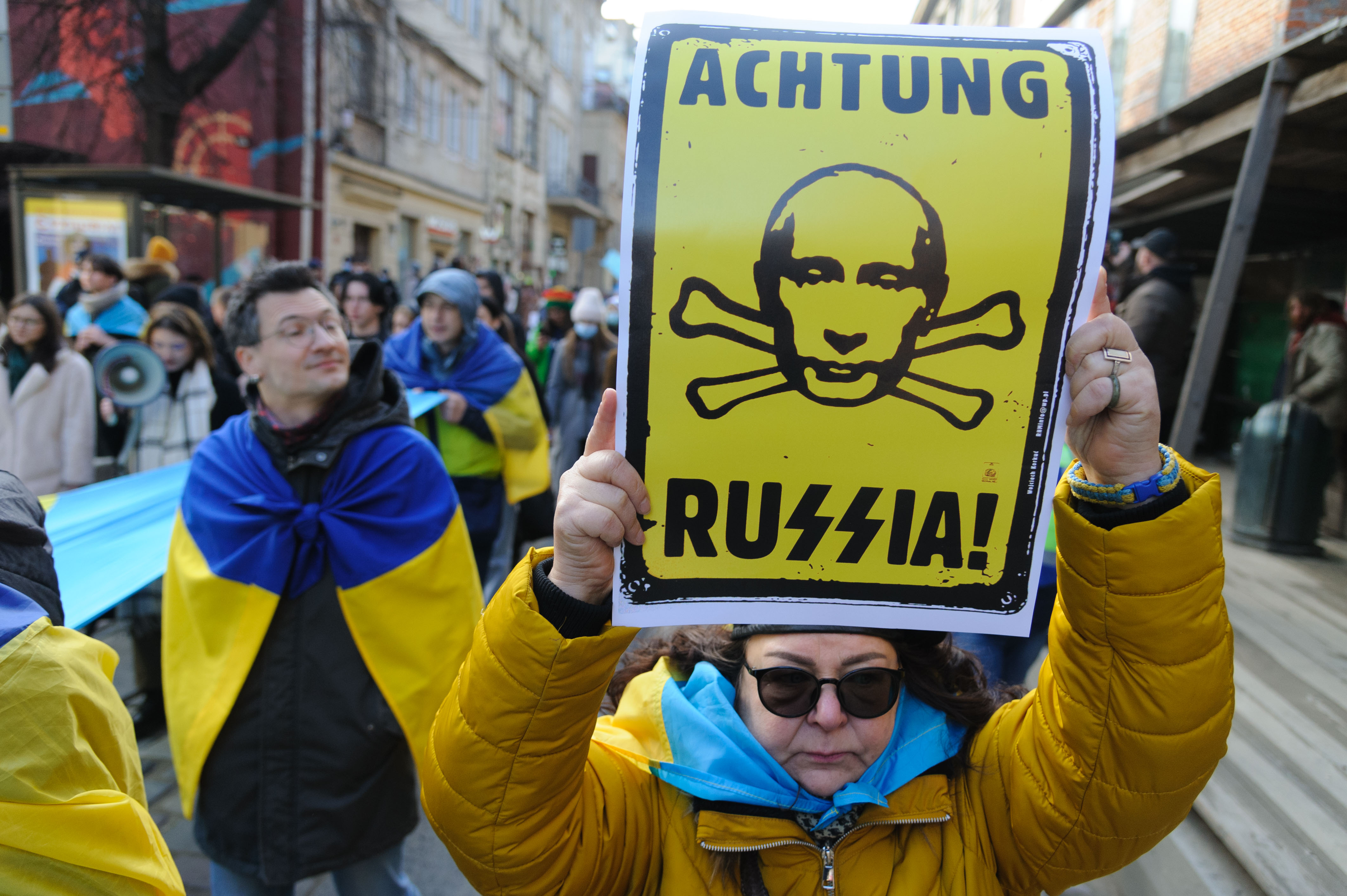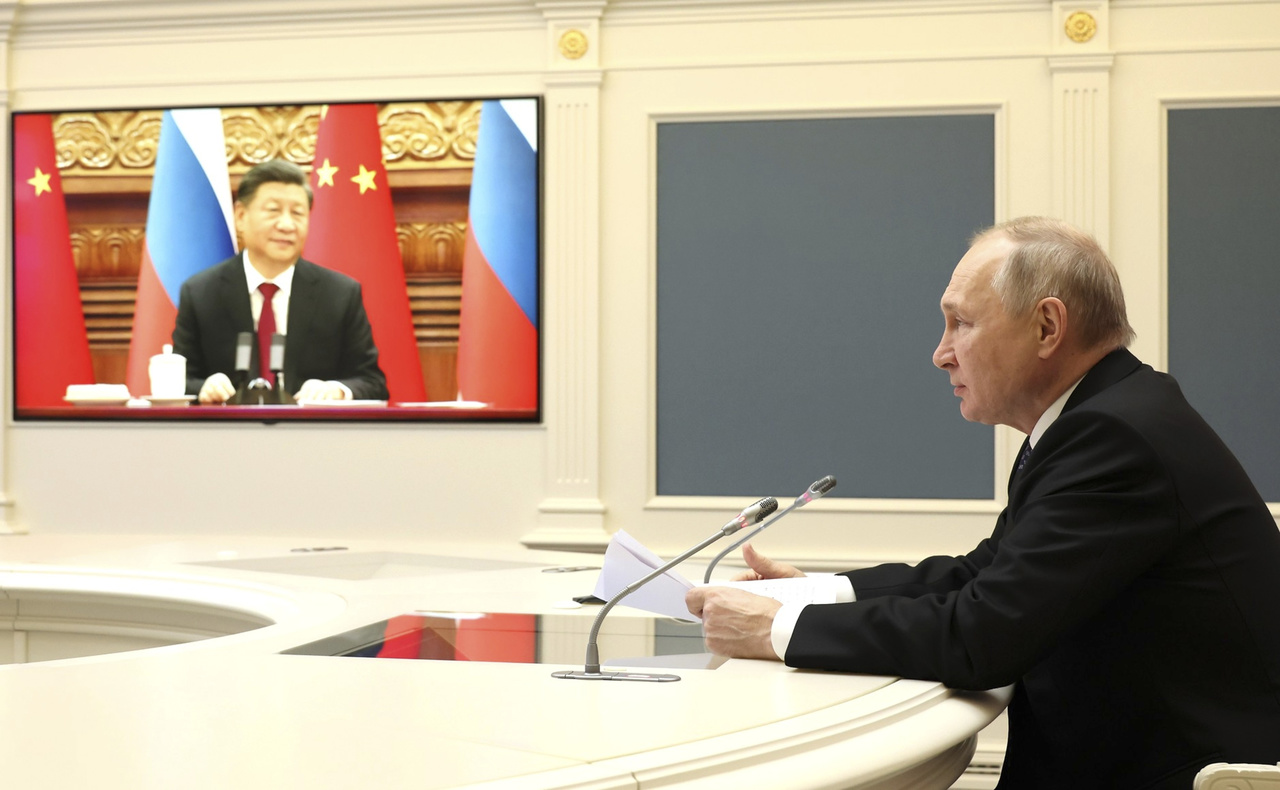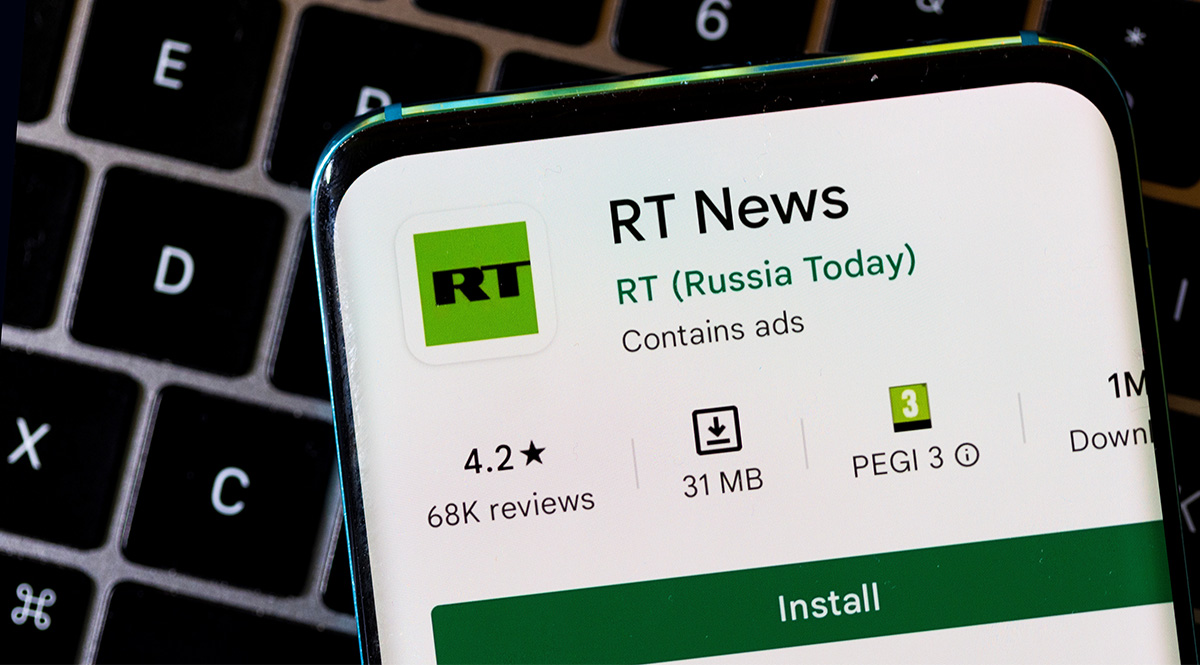Russia's Ramps Up Disinfo Campaigns Ahead of European Parliament Elections
The upcoming European Parliament (EP) elections are an opportunity for the Russian Federation to conduct disinformation campaigns and influence operations in European Union states. Russia is counting on the strengthening of extreme, Eurosceptic, and anti-Ukrainian groups in the EP. In a desire to protect democratic processes in the EU, Poland can increase citizens’ awareness of Russia’s intentions and how it tries to influence European voters, and define a response strategy that includes improving communication with the public.
 Johanna Geron / Reuters / Forum
Johanna Geron / Reuters / Forum
From March 2022, the EU has been using an expanded understanding of disinformation campaigns and influence operations, which it refers to as FIMI (Foreign Information Manipulation and Interference). Such activities are manipulative, conducted in a deliberate, coordinated manner and have the potential to negatively affect political processes, such as the European Parliament elections on 6-9 June this year.
Russia’s Objectives
During the EP elections, Russia is pursuing four main objectives of its disinformation campaigns and influence operations. Three of these are long-term: weakening the EU, disrupting Western military support for Ukraine, and degrading transatlantic relations, including reducing the U.S. presence in Europe. The short-term goal is to undermine the institutions of democratic choice in the EU through hybrid actions, such as attacks on critical infrastructure, espionage activities, sabotage, and cyberattacks, affecting social polarisation and internal destabilisation in Member States.
The Russian authorities are keen to bring narratives that are favourable to themselves into the public debate in Europe, such as the easing of the sanctions regime imposed on the Russian Federation, ways to end the conflict in Ukraine, and the development of a new EU strategy towards Russia. The future EP will not only set the tone for the European discussion on these topics but also will participate in forming the composition of the other European institutions, especially the European Commission (EC), which will be responsible for implementing aid to Ukraine and the process of EU enlargement to the East.
In the upcoming EP elections, Russia is working to reduce voter turnout, hoping that this will increase the chances of extreme, anti-European, and, above all, anti-Ukrainian groups. Despite this, according to a Europe Elects poll from the end of May this year, although there has been a rise of Eurosceptic sentiment in some EU Member States, the incumbent parties dominating the EP can count on a majority through an informal coalition of the Christian Democrats, Social Democrats, and Liberals (more than 400 out of 720 seats). Nevertheless, Russia is counting on the victory of some Eurosceptic politicians who could bring pro-Russian arguments to the EP.
Russia’s Possible Modus Operandi
European voters are being discouraged from voting in the EP elections by an intensified campaign intended to denigrate the EU and its political leaders. Russian propaganda portrays the EU as weak, crumbling, unpopular, and as a hegemon, corrupt and captured by political elites who take away “full sovereignty” from the Member States. This is accompanied by a smear campaign against the current EC President Ursula von der Leyen, French President Emmanuel Macron and EU High Representative for Foreign Affairs and Security Policy Josep Borrell. These politicians are ridiculed in Russian propaganda and accused of funding a “proxy war” in Ukraine, putting Europeans at risk of triggering World War III, and that by having an external enemy—namely, Russia—they “want to stay in power”.
To undermine trust in state institutions, Russia is reinforcing the polarisation in European societies around issues that are particularly sensitive and contentious. In Poland, the most important target group the Russians will want to reach are rural and provincial residents. Russian FIMI will primarily exploit Poles’ dislike of the Green Deal and migration. With anti-Ukrainian groups long existing in Poland, the decisive narrative will be historical issues, as well as claims of lower living standards resulting from the presence of Ukrainian war refugees on Polish territory. These will be reproduced in ways that portray Ukrainians as ungrateful for the help provided by Poles, that they take away jobs, increase crime in the country, and that they have a privileged position in Polish medical and educational institutions.
Given previous disinformation campaigns, one should especially expect increased Russian activity 72 hours before the vote. Fake or stolen social network accounts, controlled both by computer programmes (bots) and by real people (trolls), are most often used for FIMI campaigns. Russia uses a wide range of manipulation methods. To lend credibility to the manipulated message, it launches cyberattacks and falsifies the websites of opinion-forming newspapers. On 31 May this year, there was just such an attack on the website of the Polish Press Agency, where information was posted about the government’s allegedly planned general military mobilisation of Poles. On 1 June, in turn, there was a cyberattack on the German CDU party’s systems.
Due to restrictions on Russian activities on Western social media, the involvement of Russian official accounts on TikTok has increased. This year, 44 of the 50 posts with the most engagement came from this service. The remaining six were shared by accounts on X (the former Twitter). On average, posts on TikTok attract around 100,000 reactions each, which is 3.5 times more than on Telegram and 20 times more than on X.
Conclusions and Recommendations
Russia’s FIMI-related strategic objectives have not changed in view of the EP elections. Russia still seeks to change the current international order and hopes to weaken the West, including reducing its support for the embattled Ukraine. It therefore focuses on destabilising the internal situation in EU countries. In Poland, it uses narratives antagonising Poles about Ukrainians and anti-EU and anti-American slogans. At the same time, Russia has adapted the tactics of its FIMI operations to the changed information environment in the EU, including the blocking of its TV stations RT (formerly Russia Today) and Sputnik, and sanctions. However, the implementation of EU sanctions remains a problem, as Russian content is still disseminated via alternative domains or websites with only selected articles or links redirecting traffic to Russian media.
Poland may consider taking additional measures to counter Russian FIMI in view of both the upcoming EP elections and longer term. Countering FIMI incidents should be accompanied by a holistic approach comprising three pillars: the public administration, the non-governmental sector, and the private sector. At the governmental level, there could be an institution responsible for monitoring and combating FIMI. In turn, non-governmental organisations dealing with countering disinformation could receive funding from both the government and the private sector to boost their efforts.
With a view to the next elections in Poland, “prebunking”, or early signalling of potentially harmful narratives and Russian methods of operation, could be used to increase public resilience. “Prebunking” shows greater effectiveness than fact-checking (after publishing) as it is preventive in nature. It would be advisable to create a list of official accounts that require special monitoring (previously identified as FIMI actors), so that when their manipulative activity increases, they can be blocked at an accelerated pace or properly flagged on online platforms. To this end, it is worth appointing a national coordinator for the implementation of the EU Digital Services Act, adopted in February this year. In addition, artificial intelligence technologies should be used to monitor and detect inauthentic behaviour in the digital space, thus limiting the reach of FIMI operations.
In the longer term, consideration could be given to developing a strategy for communicating with Polish society, particularly with specific groups of voters who are vulnerable to Russian narratives. In order to increase public resilience and protect democratic institutions from FIMI, it is also worth improving coordination between ministries involved in combating disinformation and influence operations, as well as involving non-governmental, expert, and academic bodies.






